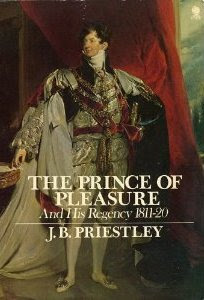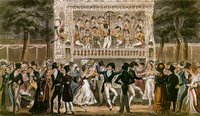I have turned in my revisions for My Dangerous Pleasure (Book 4 of my My Immortals series) and am now FREE, FREE AT LAST for a while and can totally concentrate on The Next Historical, which is shaping up to be awesome. I am hoping I get to keep my malfunctioning door hardware scene.
Other Historical Book News
I have my rights back for two of my historicals, Lord Ruin and The Spare, and hope to be hearing something on another in about three months. My exciting news is that I am in the process of getting new cover art for Lord Ruin and hope to have that available in digital formats and POD by the end of this month or early February.
Publishers Not Leveraging Backlist
It’s always been interesting to me that publishers and other industry professionals like to point out that Publishers make quite a lot of money on backlist titles. But they’re always talking about Books We’ve Heard Of. Makes sense, since many of these titles sell a lot. To Kill a Mockingbird, anyone?
But there’s a hidden backlist that publishers have not been taking advantage of, and that’s the vast pool of genre fiction. For the purposes of this post, let’s limit the discussion to Romance. There are out of print (OOP) titles that consistently show up on lists of reader favorite, years after they were first published. The only way to get these OOP books are to find them used (if you haven’t saved your copy) or find a pirated version.
Invisible Demand for Out Of Print Books
There is a pent up demand for a lot of OOP Romance titles but it’s largely invisible to publishers because the titles were mass market and intended to have a short life and, to my knowledge, publishers aren’t tracking demand for used books– which is (almost) the only way to get your hands on these OOP titles.
The reality is that publishers were wrong about the short shelf life. This might be true for certain titles or certain authors — the book or writing is mediocre, let’s say. (and this is true of literary fiction, too.) The reality is that there are genre authors who are talented, amazing writers and their stories are worth re-reading. I bet Amazon has the data that proves this, and I bet that data would be very interesting to see. I bet that data shows there are certain OOP titles that are in demand.
I believe Publishers have missed a revenue stream with genre fiction. Popular OOP titles are sitting there, entirely unmonitized except for used book dealers. Digital publishing has created a whole new way to monitize that wide pool, but publishers are in a difficult situation now because 1) they’re blind to the demand and 2) the current system isn’t suited to the digital reality. (And that’s a whole other post!) They’re also not looking at authors with backlist as potential partners in a different publishing scheme, again, a whole other post.
Meanwhile, savvy authors are moving faster.
Until recently, there was nothing authors could do to satisfy continuing demand for their OOP backlist, other than hope readers could find used copies. There wasn’t much point in asking for a rights reversion, because, what would you do with the rights if you had them?
The Kindle changed everything.
Now authors can do something with backlist titles that publishers allow to languish. Now there’s a very good reason for authors to get rights reversions for OOP titles. Those books can now be reintroduced into the author’s stream of commerce, whether as a book that can be purchased or offered free as a way to seed front list sales. Or both.
If publishers were more agile and wired into their authors, maybe they would be thinking of ways to help send that stream of commerce their way. Right now, Amazon is doing that instead. From what I’m seeing and hearing from other authors, there’s another disruption on the way, and that’s the reintroduction of OOP backlist into what is a frontlist-like commerce stream.
I’m looking forward to the Future
I can’t wait for the time when I can sit around yakking about great romances from the past and if a title being discussed intrigues me, being able to pull out my iPhone or eReader and get my hands on that book within seconds. I can’t wait to read a book I love and be able to get my hands on ALL of that author’s backlist within seconds.
What do you think?
Opine in the comments.





